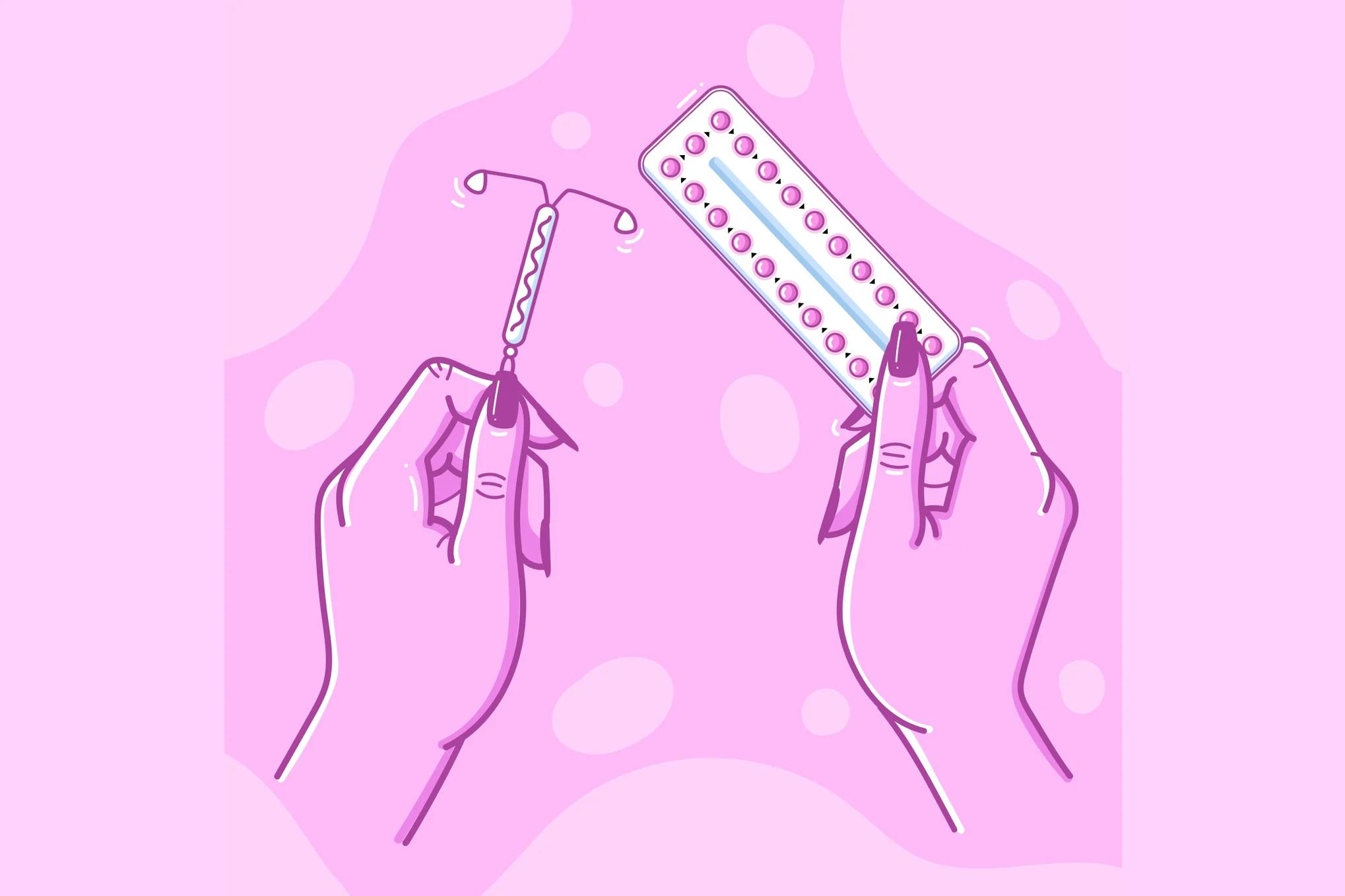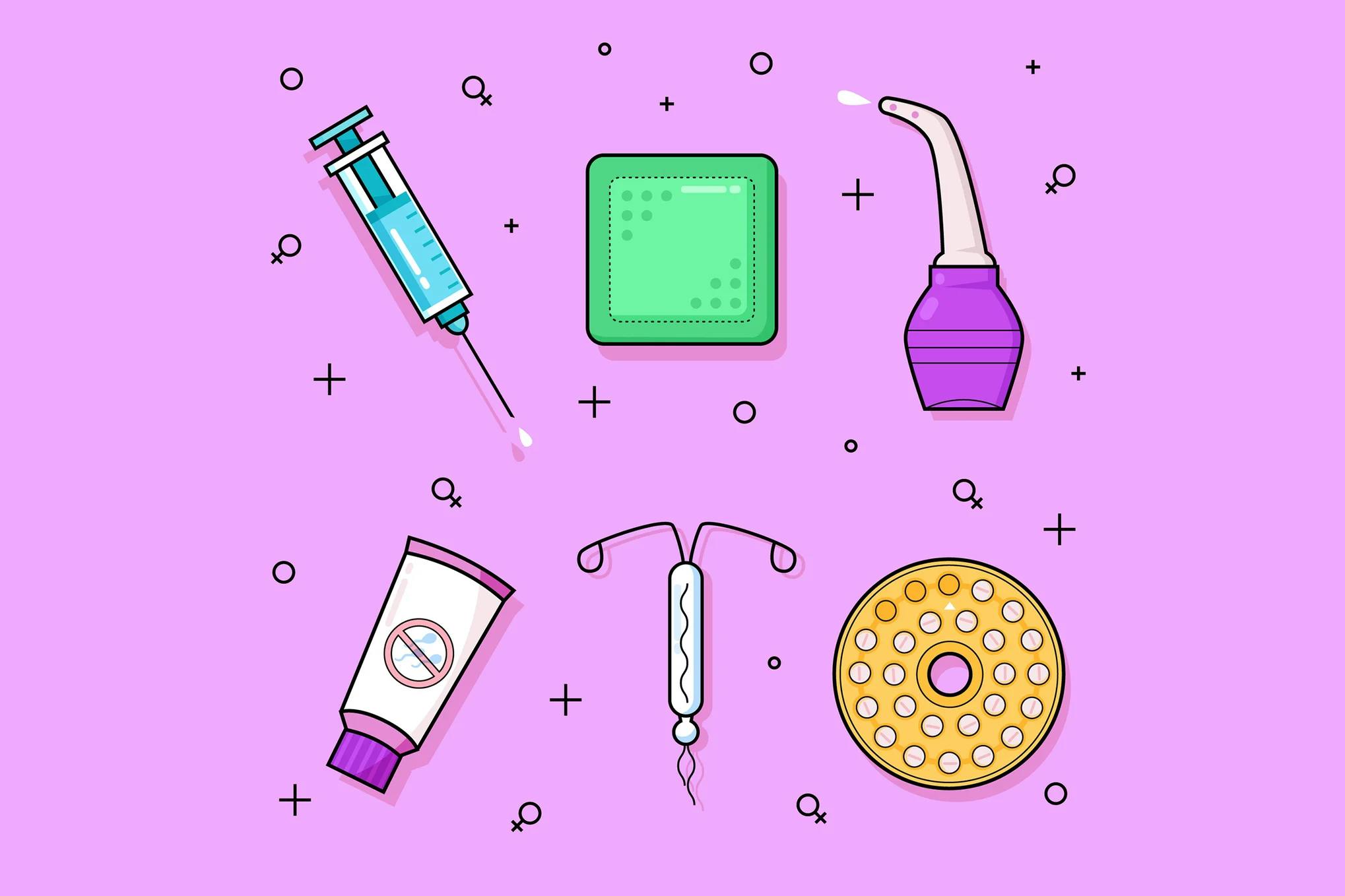What Is an IUD and How Does It Work?
An IUD, or intrauterine device, is a small, T-shaped contraceptive inserted into your uterus to prevent pregnancy.
There are two main types: hormonal, like Mirena IUD, which releases hormones to inhibit fertilisation, and non-hormonal copper IUDs, which prevent sperm from reaching the egg.
Understanding how these devices work can help you make informed decisions about your birth control options.
Hormonal vs. Non-Hormonal IUDs
While considering birth control options, understanding the differences between hormonal and non-hormonal IUDs is essential for making an informed decision.
Hormonal IUDs, like Mirena, release progestin to prevent pregnancy, thickening cervical mucus and thinning the uterine lining. They're effective for three to five years, depending on the brand.
In contrast, non-hormonal IUDs, such as copper IUDs, don't contain hormones and work by creating an environment toxic to sperm. This makes them a suitable choice for those concerned about hormonal side effects.
Knowing these distinctions can help you choose the best option for your reproductive health.
How Mirena Releases Hormones in the Body
Mirena works by releasing small amounts of the hormone levonorgestrel directly into the uterus, which helps prevent pregnancy.
As a hormonal IUD, Mirena thickens cervical mucus and thins the uterine lining, making it difficult for sperm to fertilise an egg or for a fertilised egg to implant.
This localised hormone release minimises systemic effects and side effects compared to other hormonal contraceptives.
While some may experience temporary fluid retention, it's important to recognise that weight gain isn't a common side effect associated with Mirena.[1]
Most users find hormonal IUDs like Mirena effective and manageable for their birth control needs.
Does Mirena (and Other IUDs) Cause Weight Gain?
When considering Mirena or other IUDs, you might wonder about their potential impact on weight.
Research indicates that while hormonal changes can influence weight,[2] there's no strong evidence tying IUDs directly to significant weight gain.
It's crucial to understand both the short-term and long-term effects of these devices, as individual experiences can vary widely.
Understanding the Link Between Hormones and Weight
Understanding how hormones affect weight can be vital for individuals considering an IUD, especially hormonal options like Mirena.
Hormones play a significant role in regulating your metabolism, appetite, and body weight. While progesterone, released by hormonal IUDs, can lead to bloating and fluid retention, [3] it typically doesn't cause actual fat gain.
Instead, any perceived weight gain often stems from lifestyle factors such as stress, diet, and exercise habits.
It's important to recognise that individual responses to hormones can vary, so consulting with a healthcare professional can help clarify any concerns regarding hormones and weight gain related to IUD use.
What the Research Says About IUDs and Weight Gain
Research on the relationship between IUDs and weight gain has produced mixed results, leading many to question whether hormonal options like Mirena contribute to changes in body weight.
While some users report weight gain, studies indicate that only about 5% of users experience this side effect. [4] It seems that any weight gain is often linked to water retention rather than fat accumulation.
Similarly, Kyleena and other hormonal IUDs may have a similar impact. Ultimately, factors like lifestyle and individual differences play a more significant role.
Short-Term vs. Long-Term Effects on Weight
While the previous discussion highlighted the limited evidence linking IUDs, particularly hormonal ones like Mirena, to weight gain, it's important to explore how these devices may affect body weight over both the short and long term.
Initially, some users might experience water retention, leading to temporary weight gain, but this typically resolves within a few months.
Long-term, most studies show no significant correlation between IUDs and sustained weight gain. [5]
So, does Mirena make you gain weight? For the majority, the answer is no.
Factors like lifestyle and individual health play a more substantial role than whether IUDs cause weight gain.

Common Factors That Influence Weight Changes
When considering weight changes, it's important to factor in hormonal influences, lifestyle choices, and individual metabolism.
Hormonal birth control can lead to fluid retention, while your diet and exercise habits play a significant role in weight management.
Additionally, genetic predispositions can affect how your body gains or loses weight, [6] making it vital to evaluate these components alongside any contraceptive method.
Hormonal Birth Control and Fluid Retention
Hormonal birth control, particularly methods like IUDs that release progestin, can influence fluid retention in the body, which may contribute to perceived weight changes.
Many users wonder, "Does the Mirena cause you to gain weight?" or "Will Kyleena cause weight gain?"
While some individuals report temporary weight fluctuations, these are often due to water retention rather than fat gain.
Typically, any initial increase in weight resolves within a few months.
It's important to remember that lifestyle factors, not the IUD itself, are more significant contributors to weight changes.
Consulting a healthcare provider can help address your concerns.
Lifestyle and Diet Considerations
Understanding how lifestyle and diet impact weight changes is essential, especially for those using IUDs. Your daily habits, including physical activity and nutrition, play a significant role in weight management.
High-stress levels can lead to unhealthy eating patterns, while a lack of exercise may contribute to weight gain. Additionally, consuming a diet high in processed foods and sugars can exacerbate weight fluctuations.
Prioritising balanced meals, regular physical activity, and adequate sleep can help maintain a healthy weight, regardless of your birth control method. Addressing these lifestyle factors is vital for overall well-being and managing any perceived weight changes.
Individual Metabolism and Genetics
While many factors can influence weight changes, individual metabolism and genetics play critical roles in how your body responds to various influences, including birth control methods like IUDs.
Your metabolism, which varies from person to person, affects how efficiently your body burns calories and processes hormones. Genetic predispositions can also influence weight gain or loss, making some individuals more susceptible to changes than others.
These factors often overshadow the impact of hormonal IUDs like Mirena. Consequently, if you're concerned about weight changes, it's crucial to reflect on your unique metabolic rate and genetic background alongside any contraceptive methods.
Debunking the Myths About IUDs and Weight Gain
It's important to understand that just because some people report weight changes after getting an IUD, it doesn't mean the device is the cause.
Correlation doesn't equal causation; various lifestyle factors and individual differences play a significant role in weight management.
Recognising this distinction can help alleviate concerns and clarify the actual impact of IUDs on weight.
The Difference Between Correlation and Causation
When considering the relationship between IUDs and weight gain, it's vital to distinguish between correlation and causation. Just because some individuals report weight gain after getting an IUD doesn't mean the device is the cause.
Research shows no substantial evidence linking IUDs to significant weight changes. [7] Instead, other factors like lifestyle, stress, and hormonal shifts often play a more prominent role.
Understanding this difference helps you approach weight concerns with a clearer perspective. It's important to consult a healthcare provider for personalised insights, ensuring you're making informed decisions based on accurate information rather than assumptions.
Why Some People Experience Changes While Others Don't
Though many women report weight changes after IUD insertion, it's vital to recognise that individual responses vary widely, and these differences can often be attributed to a combination of factors.
Hormonal fluctuations, lifestyle choices, and genetic predispositions all play a role. Some may experience water retention due to hormonal effects, while others mightn't notice any changes at all.
Additionally, factors like diet, exercise, and stress levels greatly influence weight management.
It's important to remember that the IUD itself isn't the sole determinant of weight changes; individual experiences and circumstances are key to understanding these variations.

